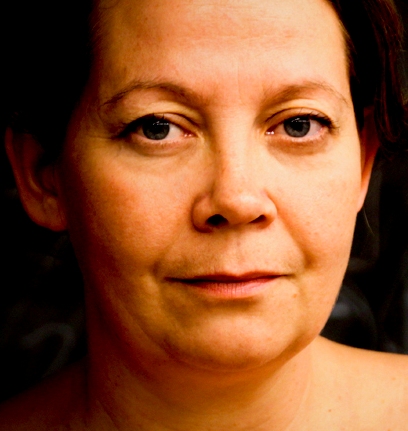“The Swedish Sex Purchase Act has received much attention both nationally and internationally. It is considered an important measure for the gender equality policy,” says May-Len Skilbrei, researcher on prostitution and professor at Department of Criminology and Sociology of Law at University of Oslo.
In the article «The Swedish Sex Purchase Act: Where Does it Stand?», Skilbrei and Charlotta Holmström, senior lecturer at Malmø University, present an overview of the research carried out on the effects of the Sex Purchase Act since it was introduced in Sweden in 1999. They have looked at both desired and unintended effects.
“We have worked with prostitution and human trafficking for many years, and we have seen numerous claims stating that research demonstrates both this and that,” says Skilbrei.
According to Skilbrei, the research field is so politicised that one needs to be extra critical to the research. She and Holmström have thoroughly gone through research and reports from authorities and civil society in order to find an answer to whether there have been changes in the Swedish sex market since the act was introduced and whether these changes are actually results of the ban.
Difficult to determine how many buys sex
Even the number of prostitutes in Sweden before and after the introduction of the ban is difficult to determine, according to Skilbrei.
“Knowledge concerning the size of the prostitution market before the ban was primarily based on whom the social workers came into contact with. There’s no reason to assume that these represent the market in its entirety,” she says.
“At the same time, there are grounds for assuming that those who come into contact with the social workers may have changed since the ban was introduced.”
There are several reasons why the prostitution research field is so complex and difficult to get a clear overview of, according to Skilbrei.
“First and foremost, it is a highly flexible market. Historically, for instance, we have seen that people sell sex regardless of whether it is illegal or not, also in countries in which prostitution is punishable by death.”
“The market is also global,” she says. Actors come and go, some are involved only for shorter periods and are not necessarily detected by the authorities.
“Those who migrate to a country with the intention of selling sex are not always familiar with the laws in force. When the police in Northern Italy become more violent, the Nigerian women who used to sell sex there migrate to northern Europe. They run from something rather than to something, and are not necessarily affected by which laws are in force in the country to where they travel.”
Other laws also affect prostitution
The regulations in the field of prostitution are often complicated, and the same regulations do not apply in all countries. Neither is the market only affected by one set of laws. For instance, immigration acts may be equally as significant as sex purchase acts: Immigrant women who sell sex and come into contact with the police risk deportation, which also happens in Norway.
“It is not a good idea to sell sex on the street if you lack documents,” Skilbrei emphasises.
“Is there any reason to believe that the prostitution market in Sweden is smaller now than it was before the Sex Purchase Act was introduced?”
“Street prostitution has decreased. But this is the case in many European countries, and is just as much a result of other factors such as the internet and the Immigration Act. The police also work much more actively now in order to clean up the public space than they used to.”
The latter is often part of a gentrification process – an urban development in which old working-class districts are taken over by the middle class and other more wealthy sections of the population.
“Changes in the drug policy also affect the prostitution market: There is less prostitution in places where drug addicts are offered treatment.”
Factors such as migration, technology and urban development also contribute to changing the composition of the market, where prostitution takes place and who is selling sex. This also applies to countries with very different legislation on prostitution.
The support for the Sex Purchase Act in Sweden has increased, but there are major gender differences.
Although street prostitution has decreased in Sweden, Swedish authorities have, on the other hand, reported an increase in announcements for the indoor prostitution market in Sweden. According to Skilbrei, this may indicate that the so-called indoor market has grown.
“We can’t presume that the number of announcements equals the number of people, but they may be used as an indicator. Nevertheless, the conclusion is that we don’t know whether the total scale of the prostitution market in Sweden has increased or decreased,” says Skilbrei.
“It has to be said that there hasn’t been much prostitution in Sweden in recent time, neither before nor after the Sex Purchase Act. Both the gender equality policy and the welfare state prevent prostitution.”
The act’s effect in human trafficking is unknown
Another question that the researchers address in their article is whether the ban has restricted the scope of human trafficking in Sweden.
“We still know very little about this,” says Skilbrei.
Several researchers have concluded that there is less human trafficking in countries where prostitution is criminalised and more in countries where prostitution is legalised. The same researchers warn that the figures should be analysed with care. Skilbrei emphasises that it is difficult to compare the scope of human trafficking over time and in different countries, among other things because the number of victims of human trafficking is counted very differently.

“In Sweden, they only count victims of human trafficking that may be useful in a criminal case. However, they hardly represent the actual figures. In Norway, we also identify victims that will never appear in court. Thus, the scope is difficult to compare even with neighbouring countries.”
“May reduced demand also reduce the scope of human trafficking?”
“That is one theory. But one can also imagine that the scope gets bigger. If those who choose to sell sex stop whereas only those who don’t have a choice continue,” says Skilbrei.
– Hvis jeg har andre muligheter,
“If I have other options, I won’t bother selling sex if I risk being approached by the police. If I’m a victim of human trafficking, I don’t have a choice. And who are the customers that stop purchasing sex following a ban? Perhaps those with more scruples?”
“Which theory do you find most likely?”
“One can imagine that a ban makes the more ‘straight’ customers and sellers disappear from the market when it comes under pressure. And then the human traffickers get to rule the market.”
“But at the same time, one can imagine that criminalising sex purchase makes it more difficult to sustain human trafficking, because it attracts more attention from the police. Both scenarios are possible consequences of criminalising.”
Skilbrei warns against selecting the conclusions that you want to believe, so-called ‘cherry picking’ results.
“When researchers produce politicised knowledge, the results often become highly tendentious. In a landscape such as this, researchers need to be particularly strict in their methods and careful in their conclusions.”
See also: Norwegian ban on buying sex affects immigrant women
Many support ban on sex purchase
One of the objectives in the Sex Purchase Act was to alter norms and attitudes, by transferring the stigma associated with prostitution from the seller to the buyer. According to research, notable changes have occurred in this area: Whereas a survey carried out in 1996 demonstrated that thirty-two per cent were in support of a ban against sex purchase, figures from surveys carried out from 1999 onwards have increased to more than seventy per cent.
“The support for the Sex Purchase Act in Sweden has increased, but there are major gender differences,” says Skilbrei.
Surveys from 1999, 2002 and 2008 cited in Skilbrei and Holmström’s article show that approximately eighty per cent of Swedish women support the ban, whereas the support among men has decreased from seventy to sixty per cent within the same period.
The main objective when the act was introduced was to put an end to prostitution.
“The criminal act may be regarded as an expression of a norm change that was already progressing. And when the criminal act has spoken, it becomes harder to present differing views in public.”
The share of people who support the ban against sex purchase has gone up. But so has the share of people who support a ban against selling sex.”
“The opposition to prostitution has increased, with the ban as its measure. The norm change is not necessarily about transferring the responsibility over to the buyers, which was partly the intention behind the ban.”
In the Swedish authorities’ assessment of the Sex Purchase Act, it is stated that prostitutes experience increased stigma around prostitution following the criminalisation. According to the article, it is nevertheless concluded in the assessment that ‘the negative effects of the ban should be considered positive, since the aim of the Sex Purchase Act is to fight prostitution.’
“Do findings such as these indicate that the aim of transferring the stigma from seller to buyer has failed?”
“The main objective when the act was introduced was to put an end to prostitution. If the Sex Purchase Act produces more shame and stigma for those who sell sex, it does not necessarily follow that the supporters of the act change their minds,” says Skilbrei.
“Some will say that you need to crack a few eggs on the way to a better society in which prostitution doesn’t exist. That’s the way it is in politics on many areas.”
See also: Why Norway criminalized the purchase of sex
Changing attitudes in line with negative view on women?
Jenny Westerstrand has a PhD in law from Uppsala University. In her thesis, she studied international law and human trafficking in relation to prostitution. She also studied the debate on prostitution and human trafficking. She is critical to the question of whether the act has ‘achieved its goals’.
“What are we actually talking about when we talk about the ‘the goals of the act’? We live in a world with increasing inequality, with increasing commercialisation of the body and sexuality,” she says.
“The Sex Purchase Act should be seen as a step towards the creation of a society in which prostitution is not part of the market and the work life where people consume and earn their living. In this sense, the Sex Purchase Act achieves its purpose. Its goal is its means, so to say.”
Of course, it is more difficult to sell sex in a society that doesn’t accept prostitution.
According to Westerstrand, the focus on achieving goals reflects a neoliberal idea characterised by simplified goal management principles. She also thinks we should look to countries that don’t have a ban against prostitution, but where the authorities have rather included sex purchase within the legal economy.
“These countries have extensive prostitution, with its attached social problems. Sweden has not been spared of these, but we’ve been spared of the industrial scope of it.”
The question whether the supporters of the act find it acceptable to ‘crack a few eggs’ in order to put an end to prostitution is based on the wrong premises,” according to the researcher.
“Of course, it is more difficult to sell sex in a society that doesn’t accept prostitution. But how many ‘eggs’ are those in favour of making prostitution an acceptable part of society and the economy willing to crack for their preferences? In Germany, nearly thirty women within the sex industry have been murdered since they legalised prostitution.”
Concerning the law’s effect on Swedish attitudes, Westerstrand states that there has been great support for the ban the last ten years. However, she finds it regrettable that the support for a ban against sex sale has increased too.
“We live in gender conservative times, in which parties such as the Sweden Democrats are gaining support. Within these groups, i think there is a tendency to want to punish those who sell sex. This has to do with the fact that a large share of women in prostitution are immigrants, and with a sad view on women in general.”
“Studies show that there is a connection between xenophobic attitudes and a positive view of sex purchase,” says Westerstrand.
“Is this not a contradiction – that the same people who want to punish those who sell sex, are positive to sex purchase?”
“A positive view on sex purchase is a positive view on the men. The women in question, however, are looked at with contempt. This is what prostitution looks like: Yes to men, no to ‘the whore’. It’s a contradiction, but it is not my contradiction.”
Prostitutes still marginalised
When the act was introduced, it was also promised that the work towards helping people out of prostitution would be strengthened. According to May-Len Skilbrei, this has not happened in Sweden.
“It is a bit better in Norway. Ten million kroner has been earmarked annually,” she says.
Some of the researchers that Skilbrei and Holmström are quoting in their article conclude that the law has had a negative effect on the prostitutes’ experience of security, whereas others have found examples of the opposite, for instance since the ban makes it possible for the prostitute to threaten customers that they will be reported to the police.
“Discussing the law outside its context is not useful. But it is important to realise the bigger purpose: The intention behind the act was never to make things better for those who are in prostitution, but worse, in order to eventually obtain a society free from prostitution,” says Skilbrei.
“Are the advocates of the act not normally among the first to request support measures?”
“I’ve heard this a number of times. The fact that Swedish authorities say this in their assessment is a strong indicator that this is an accepted view,” says Skilbrei.
Skilbrei emphasises that the purposes of an act may be more than just achieving changes here and now, and that the criminal act is also an expression of a norm for how we want our society to be.
“You write that research on the effects of the Sex Purchase Act is inadequate. What kind of research is possible and desirable?”
“Since Norwegian and Swedish politicians are so preoccupied with prostitution, I wish that they would invest in broad, empirical and interdisciplinary research. There has been a lot of symbolic politics, but little investment in research.”
Translated by Cathinka Dahl Hambro.



